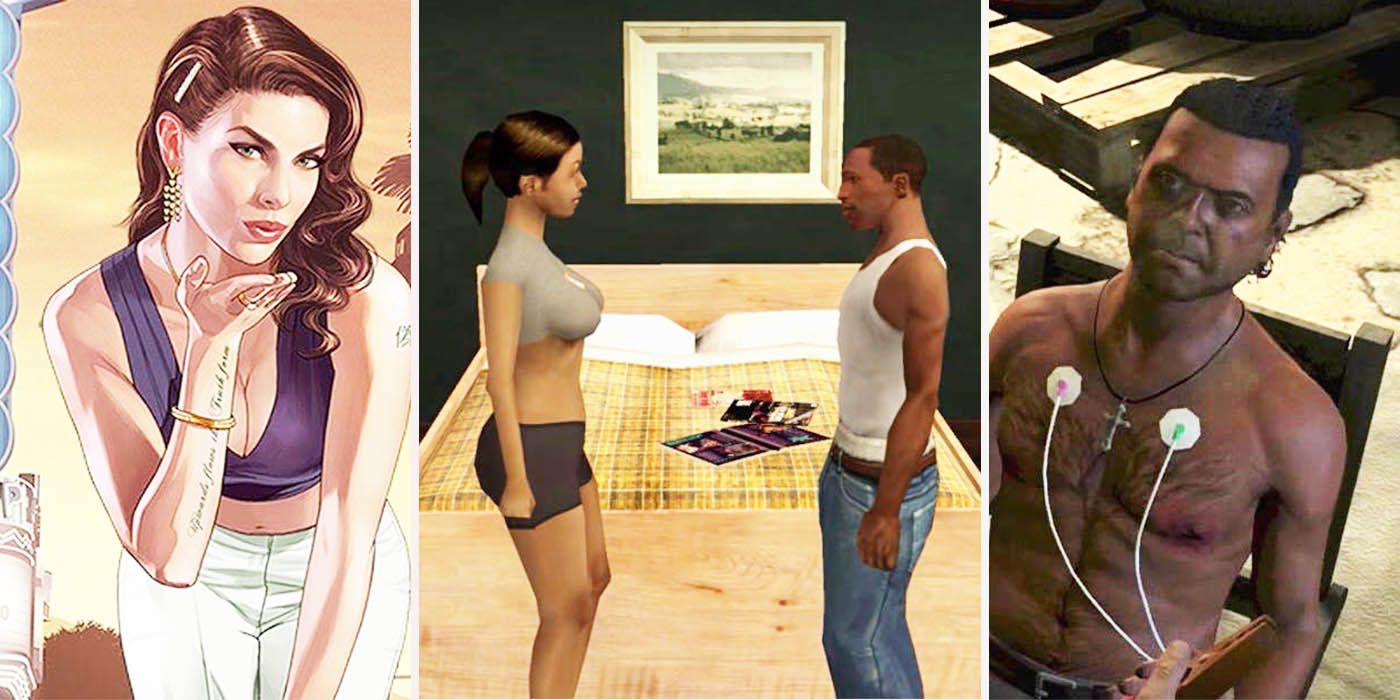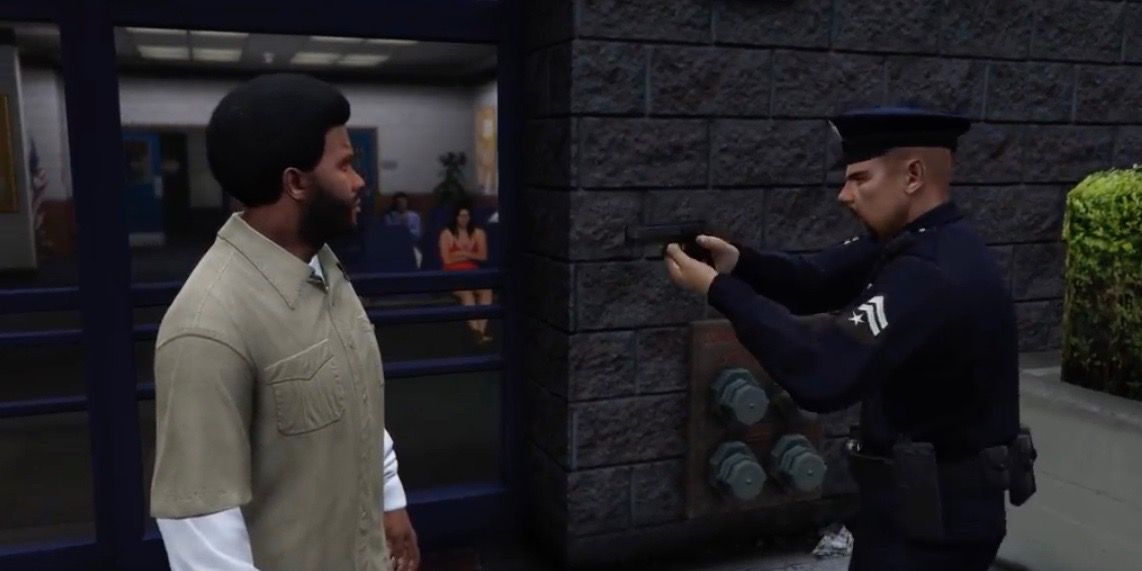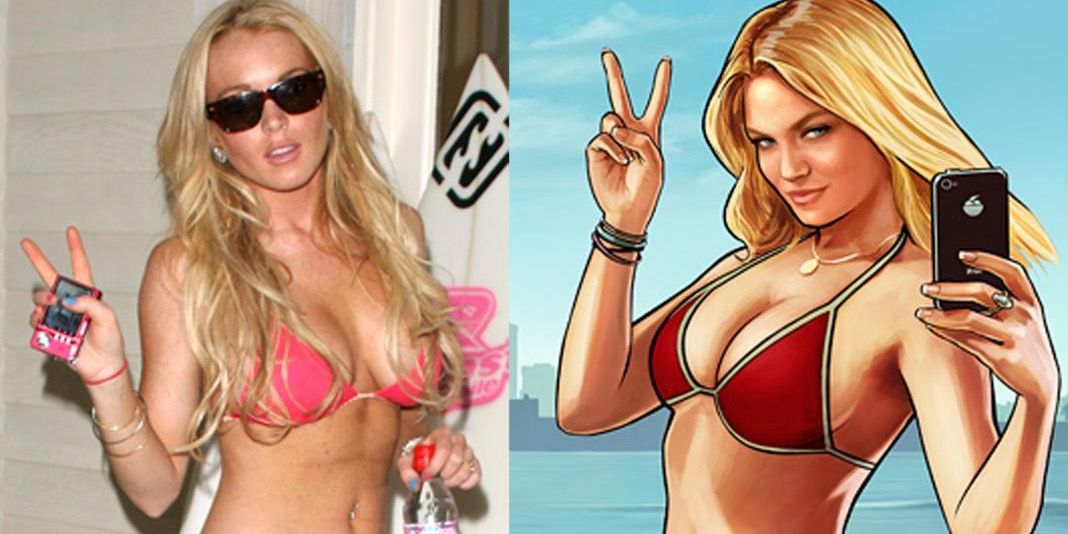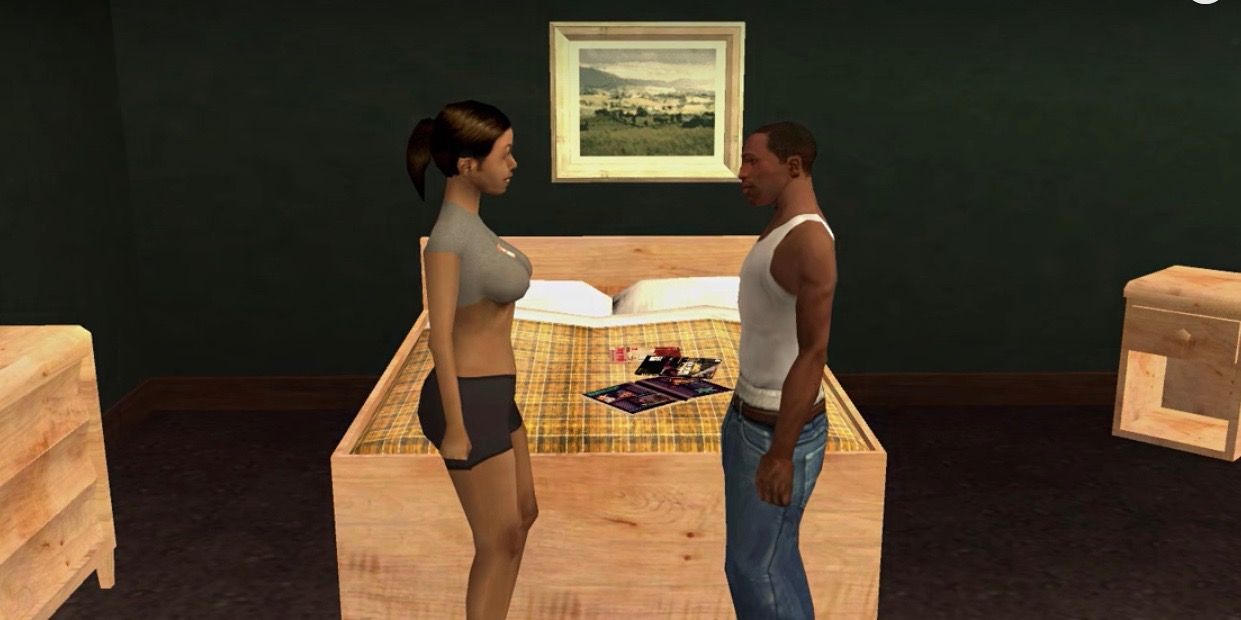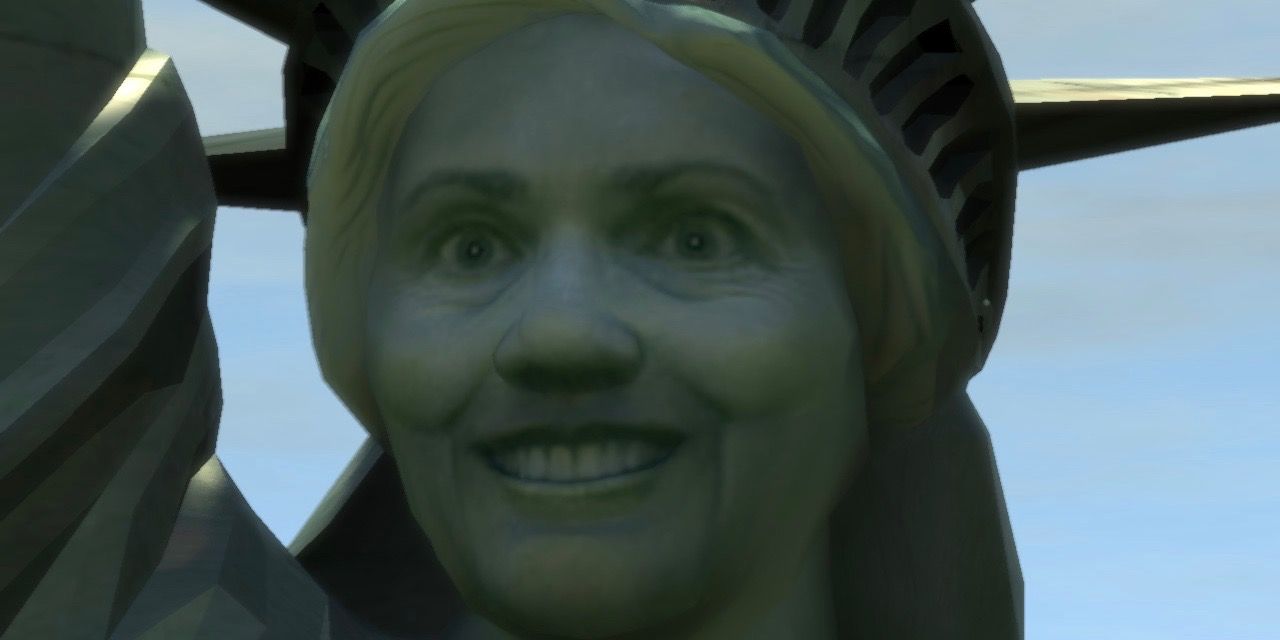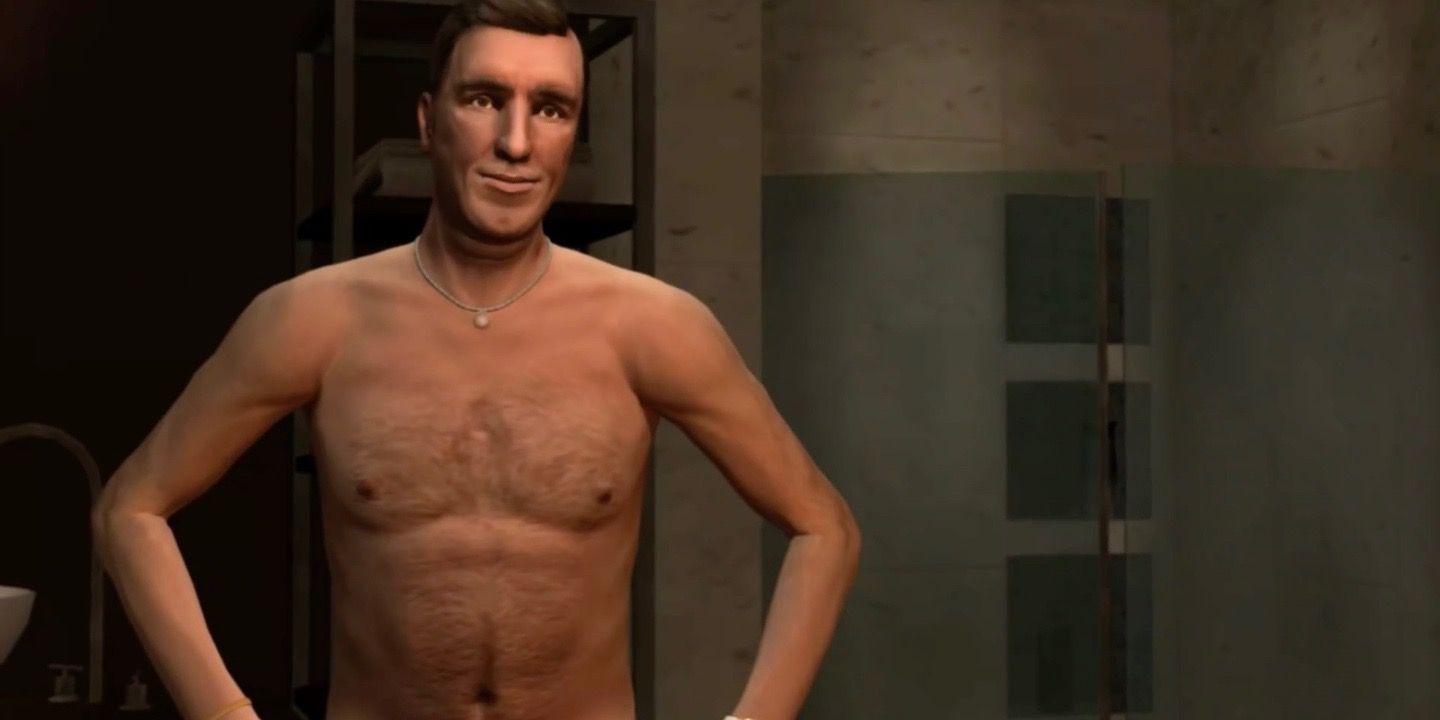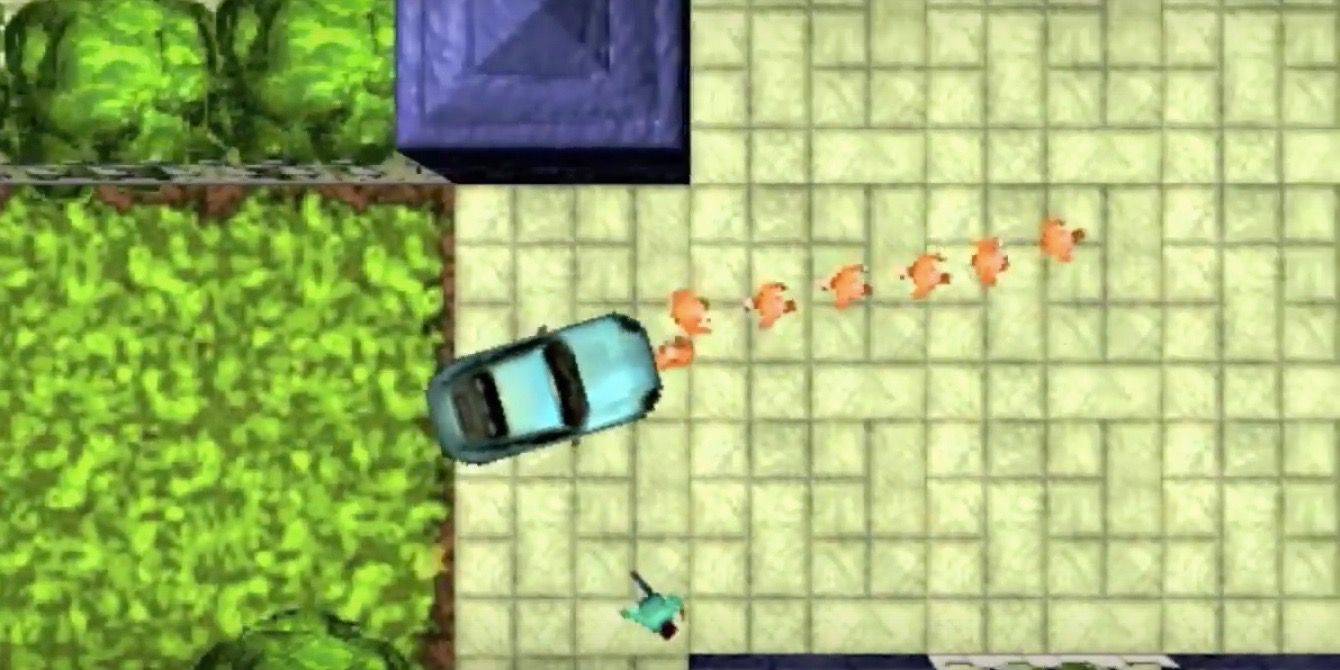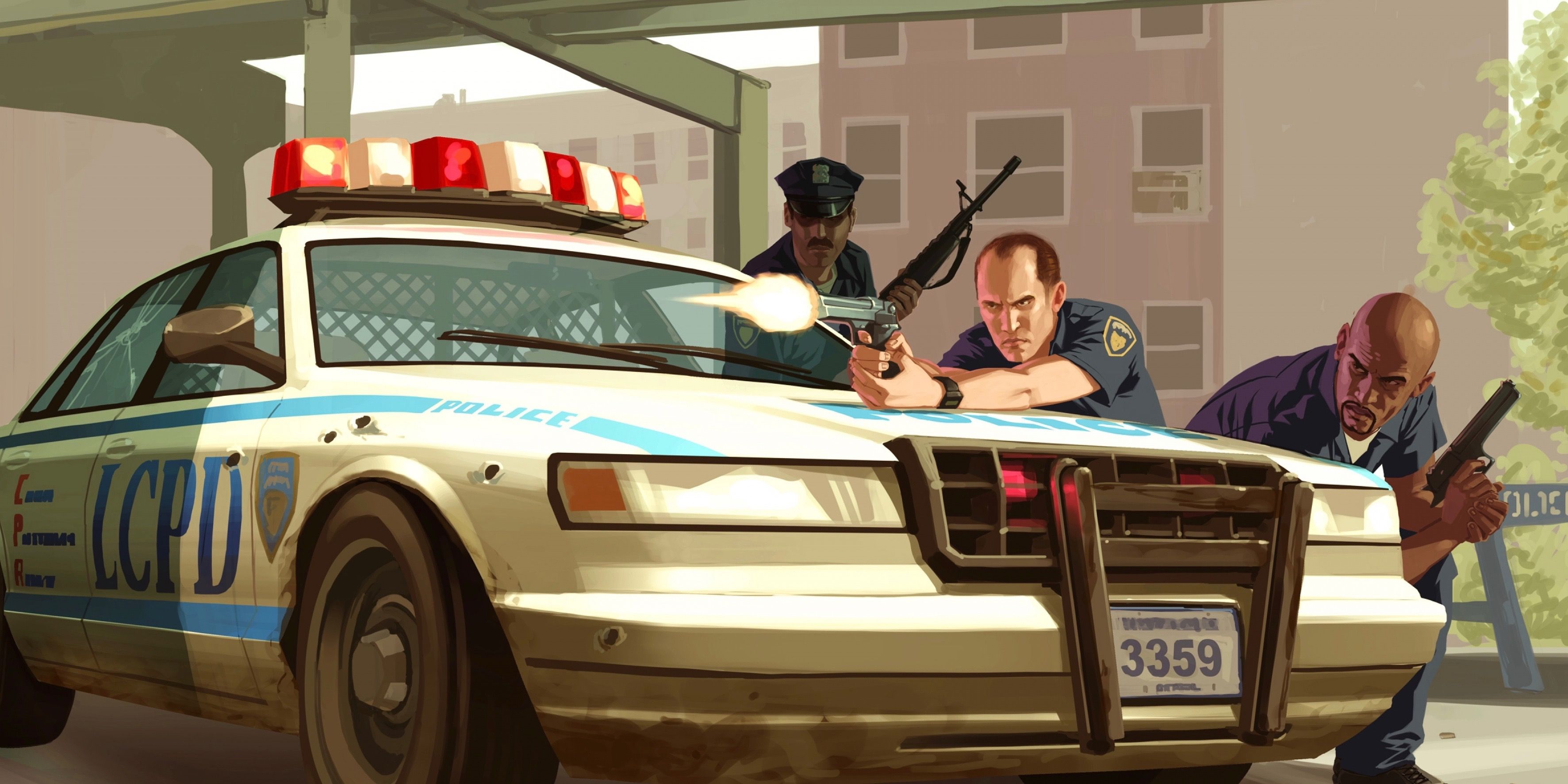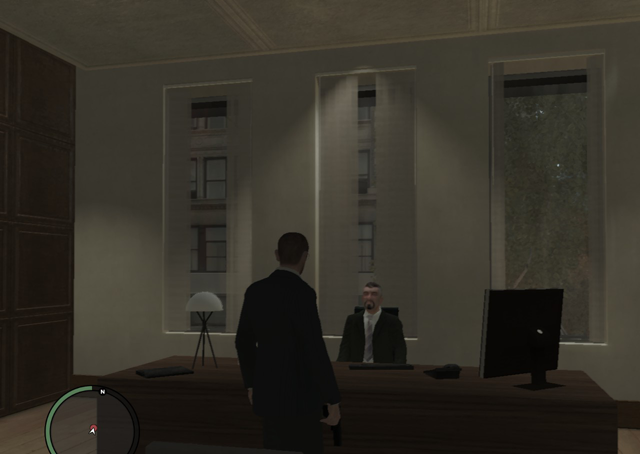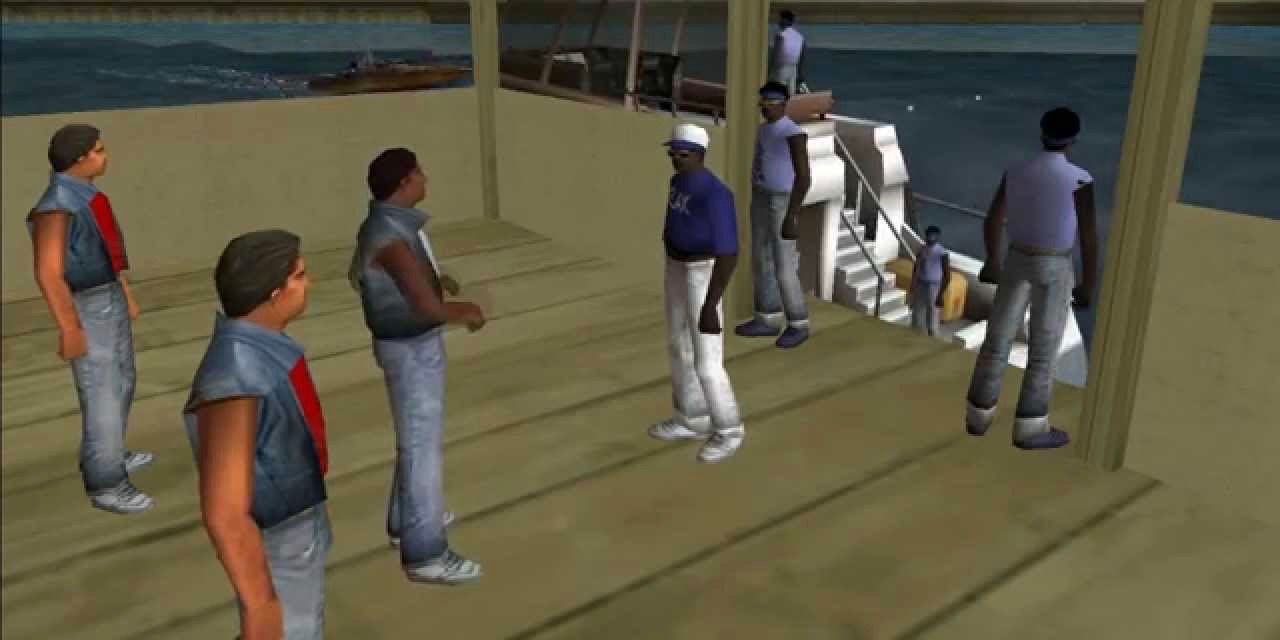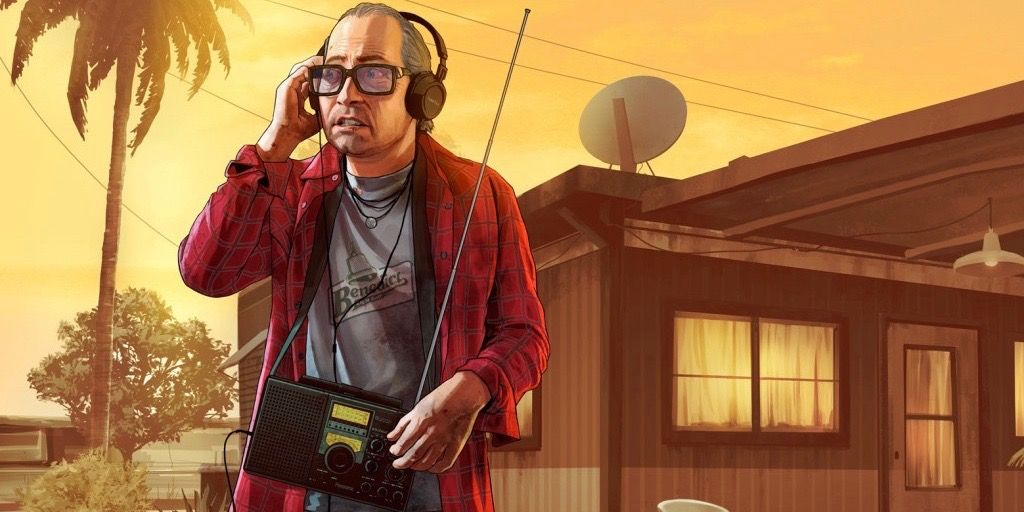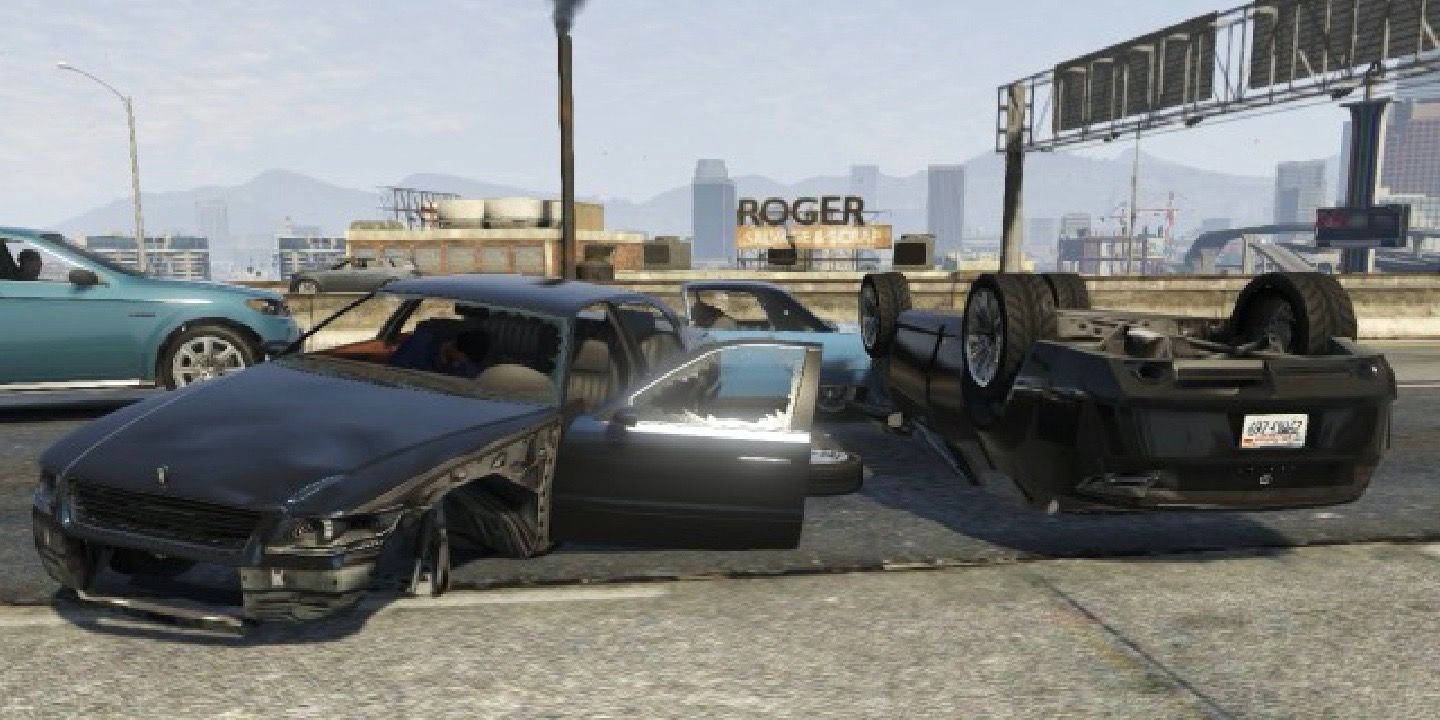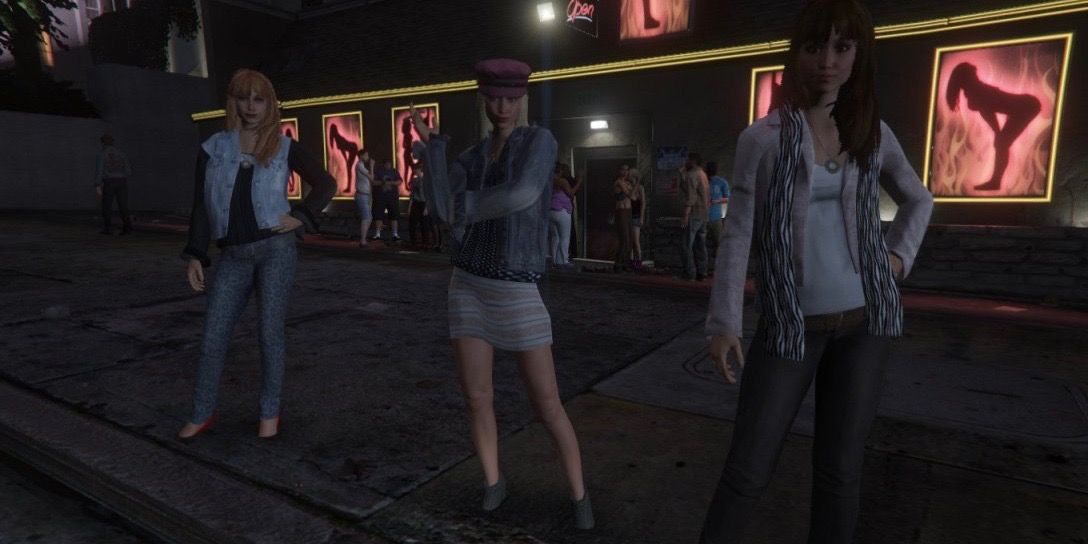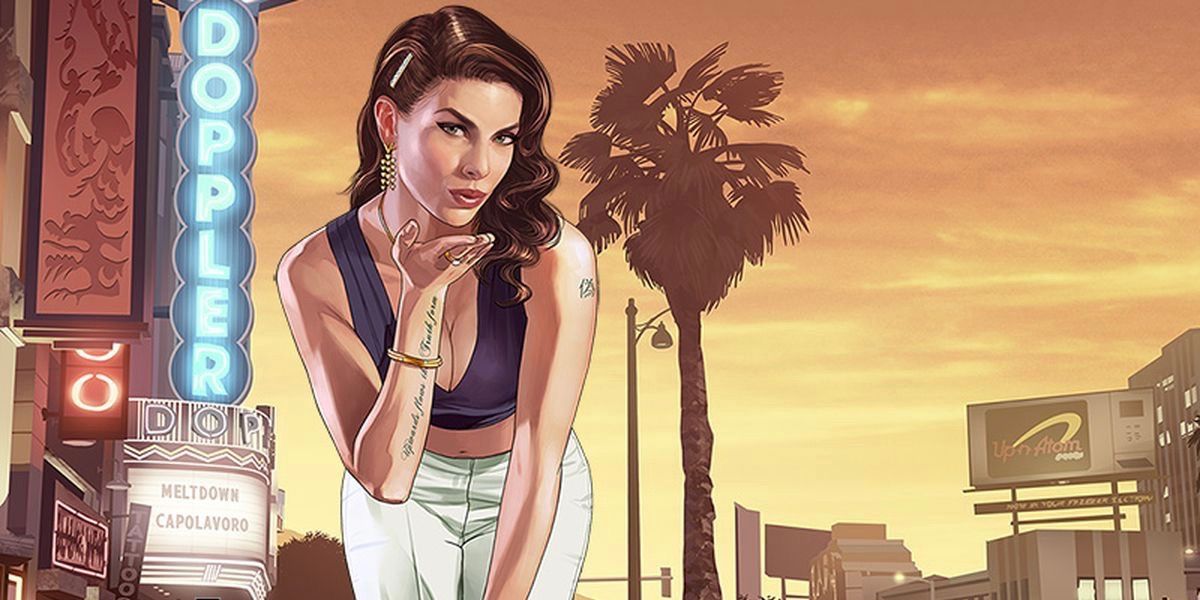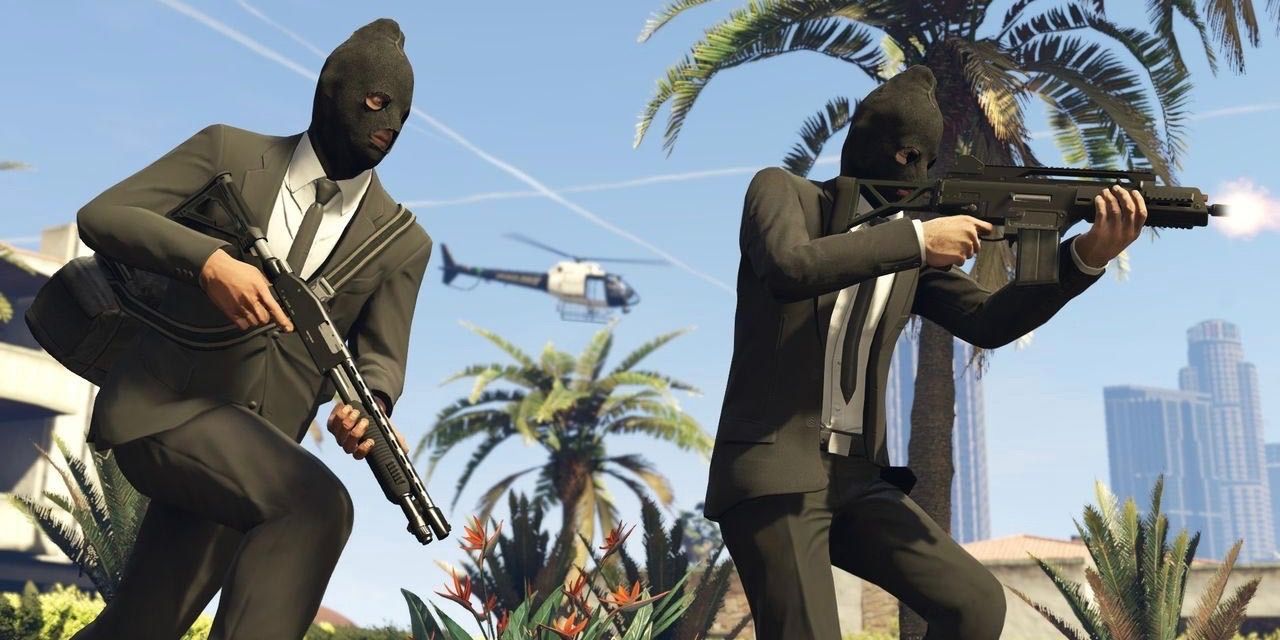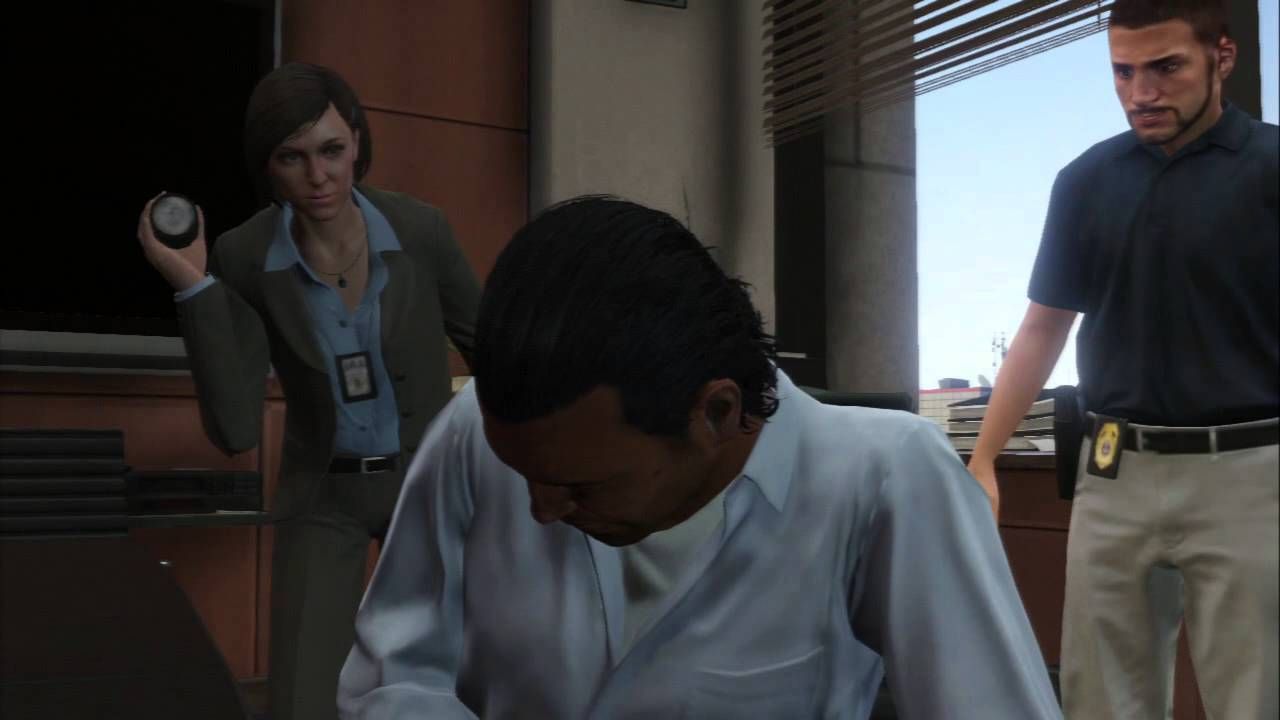No video game series has caused as much controversy as Grand Theft Auto.
Originally released for the PlayStation in 1997, the game encouraged players to commit crimes by offering them points in exchange for committing crimes. This has led critics to accuse GTA of everything from desensitizing players to violence to literally brainwashing them into committing real-world crimes.
Amidst the soaring controversy, GTA has become one of the most popular and best-reviewed video game franchises of modern gaming. The latest installment, GTA V, is already the third best-selling video game of all time with an estimated 90 million copies sold to date.
While some undoubtedly play the game just to cause as much damage and destruction as possible, others see the series as a scathing critique of modern America — a satire of the very culture that some believe the games inspire.
While Grand Theft Auto has successfully been at the frontline of open-world gameplay, they've also set the standard for what is considered appropriate content in an M-rated game. And then they've crossed that line, time and time again.
Let’s take a look at the series’ most controversial moments to date. Here are 15 Times Grand Theft Auto Went Too Far.
15. Cops are programmed to be racist
Easily the most successful installment to date, GTA V perfectly tiptoed the line between gratuitous gameplay and a scathing satire of modern America, which was no more apparent than when the character of Franklin interacted with cops.
Franklin is one of the game's three protagonists — and the only one who is African American. Interestingly enough, he also has a much harder time flying under the radar when it comes to the San Andreas Police Department.
The police in the game have actually been coded to be a lot more hostile with Franklin than they are with either of the white protagonists. In fact, a simple greeting from Franklin could result in the cops drawing their guns.
While this is far from politically correct, it is GTA's way of holding a mirror up to the real-world issue of racial profiling within the criminal justice system.
14. Real-life celebrities parodied without permission
While GTA has never been afraid of calling out their critics within the games, they’ve also taken aim at a number of celebrities by using their likeness as inspiration to create fictional characters.
Lindsey Lohan famously sued Rockstar Games for GTA V's Lacey Jones, who was allegedly based on her. Karen Gravano, star of the VH1 reality series Mob Wives, filed a similar suit over the character of Andrea Bottino.
While the similarities between these characters and the real-life celebrities are strikingly similar, both suits were unsurprisingly dropped.
After all, using someone’s likeness to create a character — especially for the sake of satire — isn’t exactly illegal. But it did go to show that GTA isn’t afraid of making fun of anyone.
13. Hidden adult mini-game
GTA games are replete with Easter eggs and countless mods for the players to explore long after the campaign is over. But this hidden mini-game in San Andreas actually incited legal action and a new “Adults Only” rating.
This mini-game, known as “Hot Coffee,” originally involved protagonist CJ being inviting inside for coffee following a date with one of his many girlfriends. However, once inside, the player was actually allowed to participate in a number of illicit bedroom activities.
"Hot Coffee" was ultimately removed before the game’s release and swapped out for something a lot more subtle, but it didn’t take long before it was discovered within the game’s code, allowing players to partake in the action nonetheless.
A subsequent lawsuit claimed that the developer purposefully deceived the public and the rating was increased to AO, Rockstar later recalled the game and re-released it with "Hot Coffee" no longer available.
12. Hillary Clinton’s face on the Statue of Happiness
At first glance, the idea of superimposing Hilary Clinton’s face on the Statue of Happiness in GTA IV may seem like a compliment, albeit a bizarre one. When it comes to real-world references in GTA, there’s usually more than meets the eye.
Back in 2005, then-New York Senator Clinton actually played a prominent role in the “Hot Coffee” investigation — which claimed that Rockstar failed to disclose the explicit mini-game hidden within the code of San Andreas.
While the Statue of Happiness is undoubtedly based on on the Statue of Liberty, there are a number of significant differences outside of the face swap. These include a less-than-positive message on the statue's tablet -- which alludes to citizens having their rights stripped away thanks to the rich and powerful -- not to mention that the torch has been swapped out for what appears to be a cup of hot coffee.
11. Showed too much Stubbs
Since GTA games have always been skewed toward male players, it’s no wonder that they have always been brimming with revealing scenes of women. In fact, the content that caused a stir back in the early 2000s is pretty tame compared to what can be seen in the gentleman’s clubs in GTA V.
But the most explicit revealing scene to date actually involved a male character.
In the downloadable content for GTA IV, Congressman Thomas Stubbs is receiving a massage when protagonist Johnny Klebitz enters for a meeting. But instead of getting dressed first, Stubbs offers up a proposition while not wearing any clothes.
While the view stays above the congressman’s waist for the majority of his speech, at the conclusion, we get a prolonged frontal shot of Stubbs. Despite this, the downloadable content still managed to get away with an M-rating.
10. Rewards for running over religious figures
Because the 1997 game didn’t make as much of a splash as the subsequent installments, this particularly violent moment largely flew under the radar of critics. That doesn’t make it any less controversial.
One of the primary goals of the original game was to cause as much mayhem as possible, which could be achieved by aiding the city’s crime syndicate or simply mowing down citizens with your vehicle or any number of weapons.
In this instance, driving through a group of religious monks, also known as the Hare Krishna, actually earned the player a bonus. The word “Gouranga” would also appear on screen after taking out the entire group, which literally translates to “be happy.”
This is pretty morbid stuff for a game that came out over 20 years ago.
9. Upsetting the NYPD
GTA has always used real-world locations as inspirations for its fictional ones, and in GTA IV, Liberty City was largely a reflection of New York City.
However, this comparison immediately drew backlash from the NYPD, who thought that Rockstar was trying to say that New York was just as crime-ridden and corrupt as Liberty City.
New York Mayor Michael Bloomberg even came out in opposition to GTA IV, along with any other game that offered players incentives for hurting or fleeing from the police.
However, the Game Developers Association decided to fire back, claiming that government officials were taking undue aim at video game, especially when the standard for violence in movies and TV shows has become increasingly lax over the years.
8. Mocking
Plenty of critics have tried to get GTA outlawed, and former attorney Jack Thompson is at the top of that list.
Thompson is a well-known anti-video game activist who has brought multiple lawsuits against Rockstar, believing that the company should be held responsible for a number of real-life crimes committed by people who have played Rockstar games.
Rockstar has never been one to shy away from controversy, so it’s extremely likely that the lawyer featured in Grand Theft Auto IV was partially inspired by Thompson.
This character is featured in one of Niko’s early missions and he uses the motto “Guns don’t kill people, video games do” as soon as he's held at gunpoint.
Thompson immediately accused the game of physically threatening him and ask to be removed. However, the real-life lawyer also ended up being disbarred the same year that GTA IV was released.
7. Racial slurs
While Vice City was highly criticized for its violent content similarly to every other GTA installment, it was actually the game's excessive use of racial slurs that had Rockstar later apologizing and removing certain phrases.
A large part of Vice City centers around the ongoing conflict between Cuban and Haitian refugees, who often resort to name calling and extreme violence. Game missions also find the player targeting both ethnic groups while making use of these offensive terms.
Many feared that this would fuel real-life hatred, and the Haitian Americans for Human Rights ended up staging a protest against the game. In North Miami, it was even implemented that no one under the age of 18 could buy or rent Vice City without parental supervision.
Rockstar maintained that Cubans and Haitians were far from the only groups being targeted in the game, but decided to remove some choice phrases nonetheless.
6. Accused of using music without the artist’s permission
Outside of their engaging storylines and sprawling cityscape, GTA games have consistently knocked it out of the park when it comes to the soundtracks -- featuring chart-topping hits and lesser-known gems for the player to listen to while cruising around town.
Unfortunately, Rockstar was accused of using two songs that without the rights in GTA V.
Rapper and music producer Daz Dillinger alleged that two of his tracks, “Nothin’ But the Cavi Hit” and “C-Walk”, were incorporated into the game without his permission. Dillinger attested that Rockstar original offered him just over $4,000 for the use of both songs, which he never agreed to.
After they were featured in the game, Dillinger went public with his story, saying that he wanted a better offer from Rockstar or that the games should be pulled from shelves.
5. Impaired Driving
While most people would never imagine enacting the kind of violence featured in GTA, drunk driving is, unfortunately, something that’s a lot more commonplace.
Therefore, when the franchise first introduced the concept of drunk driving in GTA IV — which results in a swaying camera and blurred vision for the player — there were those who thought the franchise was turning this very serious problem into a form of entertainment.
Despite certain groups, including the Mothers Against Drunk Driving, insisting that the concept be removed from the game or that GTA IV be given an Adults Only rating, drunk driving has continued to pop up in subsequent installments.
Rockstar has maintained that -- like everything else in their games -- mature players should be able to make the distinction between fantasy and reality.
4. Harming Nightworkers
By modern day standard, Grand Theft Auto III is considered by many to be the first true open-world game. That additional freedom also meant that the player was allowed to do what they wanted more than ever before — often to horrific ends.
Before GTA III hit shelves in 2001, the violent video game franchise was hardly part of mainstream culture. When word began to circulate that not only could the player pick up nightworkers, but also attack them to recollect the payment, many were understandably up in arms about the message that the game was sending to potential players.
The extreme backlash even ended up getting GTA III banned in Australia, which resulted in Rockstar Games removing nightworkers from the game entirely so it could be re-released the following year.
3. Continuing to stereotype women
While GTA has long been criticized for its excessive use of violence, revealing scenes, and racial slurs, one particular aspect that constantly seems to fly under the radar is the game’s misogynistic depiction of women.
While the male characters are far from upstanding citizens, they're at least interesting and distinctly different. Meanwhile, female characters are largely one-sided stereotypes who either fall into the category of dancer, nightworker, or overbearing wife.
Many have claimed that the games not only objectify women but also promotes violence against them — as seen when the player is allowed to kill the nightworkers after using their services.
While we doubt that GTA will ever take a step back from this violence or objectification, at the very least Rockstar could conjure up some new and interesting female characters in future games to help even things out.
2. Games linked to real-world violence
For a series that encourages its players to break the law, it’s no wonder that GTA is the subject of so much controversy. There have been a number of real-life crimes where the perpetrators have cited GTA as their inspiration.
In 2013, college student Zachary Burgess stole a pickup truck, kidnapped a woman, and struck nine cars just to see what it would feel like to be inside the game. The following year, a 14-year-old was charged with ending his father and brother while trying to impersonate Trevor from GTA V.
Of course, there’s a reason why these game have earned their Mature ratings, and it’s impossible to predict what kind of content will set someone off who may already be mentally unstable.
1. The Kerimov Scene
Like any great open-world game, the Grand Theft Auto franchise largely succeeds by letting the player decide exactly what kind of game they want to be a part of.
While you have the ability to wreak as much havoc as you want by carelessly mowing down bystander while outrunning the cops, you also have the option to stay between the lines and stick to the missions.
Unfortunately, in GTA V, the game makes the player partake in a particularly troubling scene, which finds Trevor going to great lengths to extract information from Kerimov.
The fact that this scene is part of the main storyline even incited backlash from franchise loyalists, and while Trevor ultimately decides to let Kerimov live -- telling him that it wasn't really an effective form of interrogation -- the attempted satire ultimately falls flat after such a gratuitous sequence.
--
Do you think these Grand Theft Auto moments crossed the line? Sound off in the comments!

